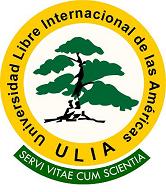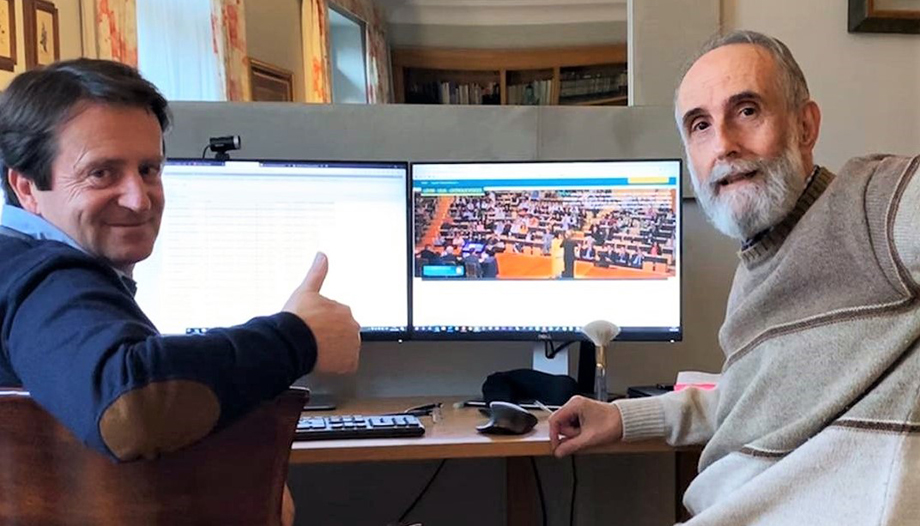Can there be an education with an ideology based on scientific excellence in defense of human life, and a philosophy of real gratuity, which is offered at a distance through the Internet, and which offers hundreds of thousands of free meditations and video talks on a platform, available to educational institutions, parishes or families? Are we dreaming? No. It is real. In the 21st century, this academic center, which is probably the first and perhaps the only one in the world, exists, and it is based on the Anglo-Saxon tradition of its own degrees. All its studies are offered at a distance through the Internet and its degrees are not endorsed by any state, nor do they aspire to be. Free International University of the Americas (ULIA), founded in 2001 in San José (Costa Rica) by a group of people who, after a series of meetings in summer universities, translated their concern “to launch a winter university, so to speak, a full course, and to adopt an ideology in defense of the dignity of human life and the philosophy of gratuity,” explains José Pérez Adán, Professor of Sociology, Rector of ULIA, and author of numerous publications, some of which are about to be released these days under the title ‘Economy and Social Health. Beyond Capitalism’, with the participation of authors from six countries. ULIA has already trained about 1,750 people since its foundation.
An education that is a gift
Omnes has spoken with the Rector, José Pérez AdánBefore entering into practical matters, we address the founding ideas: "The pro-life ideology was in our intentions, to have among the programs and degrees that were dictated some studies that somehow had to do with the defense of life. In fact, one of our oldest programs is the diploma in bioethics, and on the other hand there is the master's degree (masters), development. Both are intimately related and that is something very peculiar to this University," the professor points out.
On the other hand, "all of us who work at ULIA do it pro bono, that is, free of charge, and we think that this is the best way to give strength to the initial idea we had, the commitment to the defense of life, also because we think (we all work more or less in education), that the future of education is an education without borders, and as far as possible, an education that is fundamentally a gift," he points out.
ULIA, Anglo-Saxon tradition
Some wonder how it is possible that ULIA degrees have no official recognition, and this is another reason for reflection. "This is not so rare," comments the professor. "In Latin countries, much of the administrative system is Napoleonic, as some jurists say. In the sense that it is thought that the State must guarantee certain areas of entrepreneurship, among which is education".

"This is not the case in Anglo-Saxon countries. In this sense, ULIA is like Harvard, the degrees we issue are our own degrees, they are not guaranteed by any State. In Spain and in many other countries, when you receive your university degree, it says on the diploma: the Head of State or the first authority of the country, and in his name the Ministry, grants you the title of doctor in psychology. This is unthinkable in the Anglo-Saxon tradition".
The Rector expands here on the notion of gift, which permeates the character of ULIA, and which gives it "a sense of community." "The objective of the people who come to ULIA is the search for knowledge. One comes to this (networked) University to learn, to enlighten oneself. And also to initiate or continue a chain of gift. Because what makes this University continue over time is that what you receive for free, you feel motivated to give for free. That is why many of the tutors and many of the professors of the University have been their students before. That is very nice to see. We could say that this generates a community, not only in a synchronic sense, but also genuinely in a diachronic sense, it becomes a community through time. I receive a gift and I give it to someone else later. This ensures the survival of the community. This is what happens, for example, in the family".
Freedom and globalization
The topic of freedom could not be left out of the conversation. Even more so when the university is called "free". What do you mean when you say "Free University"? The Rector answers: "Yes, we assume that freedom is a very important human value, but we also mean that it is free from interference by governmental powers. Freedom in the university is fundamental. It is essential for universities to be free, and it is not common".
In most countries, a large part of the university system is dependent on government bodies, says José Pèrez Adán. But in his opinion, "the future does not point in that direction. The future points to government undertakings being less and less present in education. Just as they are less and less present now, for example, in the postal service. Governments have less and less presence in this service. The same will happen in education, to the extent that civil society matures, becomes more responsible, and takes on the task of educating future generations, to that same extent governments will see that their task there perhaps does not have the meaning it had in other times, and they will dedicate themselves to other things".
Could it be said that ULIA is the only university in the world based on volunteerism? "That's right," says the Rector, but "At first many people didn't understand this. It was unique, and also rare, unthinkable. Today, however, it is not. We are in a much more globalized world than at the beginning of our century. And this globalization is also knocking on the doors of education. The future of education is a future in which borders will count for less and less. There is, for example, the rise of family education, homeschoolingand others that are going to be carried out worldwide, also at the university level. I can add that ULIA is not a confessional university. Although most of us who started this university have a Christian, Catholic commitment and lifestyle, we have had people who have collaborated with us from other Christian denominations".
University and politics: different spheres
Another question of interest is whether it is up to Science to make the policy proposal. "This is an old debate. What we scientists aim to do is to understand, to comprehend, and as a consequence, to enlighten, to teach. The commitment of politicians to management adds a different characteristic to university work. In fact, many universities now teach management, governance, for example. And at ULIA we also have a diploma on management of non-profit organizations. But from a scientific point of view, what is really important is the task of understanding, of comprehension, and then enlightenment," says José Pérez Adán.
Regulated courses
Finally, we turn to the practical. "Our approach is humble," says the Rector, before offering some information about the University's regulated courses and the LDVM seminars. Among the first are the expert course in Catholic communication, or the diplomas in school religious education, in bioethics, in education in virtues through cinema, and so on.
"The ULIA courses are dated. They are regulated courses and a Diploma is awarded at the end. They all start on January 1 of each year, except those that are biannual, every two years, which are the master's degrees or masters. Enrollment just opened on May 25. People can apply for the one they want in the training offer. However, those who wish to take a course must fill in the forms of the registration process that is on the website ulia.org. They are studied, answered, and we ask that a small donation be made for the computer support of the course," says the Rector.
Admissions are closed in October-November, when the group for each course is full. ULIA reports that it tries to close the courses at 20 students per program, although there are some exceptions. For example, a school in Paraguay requested that all the teachers take the religious education course, and there were 102 registrations.
LDVM Seminars
Although ULIA was born first, later, in order to give it a more stable legal seat, the ULIA was launched. Inter-American Science and Life Foundationregistered in the Valencian Community. One of the Foundation's projects, the first one, was the University, and then came Catholic Voices España, which we founded here in Valencia, at the initiative of Catholic Voices Englandwho are the first. Jack Valero was here in Valencia, also Austen Ivereigh, co-founder".
What was it like to launch the LDVM platform? Professor José Perez Adán offers two insights into the intrahistory: "Once the first two or three Catholic Voices programs were done at ULIA, the need arose right there. We had a lot of material to supply to all the people who do our program, and to ULIA alumni who have to do with spirituality. We are also going to create a platform, LDVM, within the Foundation, to cover the spectrum that ULIA does not have, because ULIA is not confessional, but LDVM is. So we created LDVM, which has its own flight.
The LDVM seminars They don't have dates, they are always available for anyone who asks for them, says José Pérez Adán. "Any of the LDVM seminars are already recorded. Anyone who wants to attend sends the request, and we give them the key. Access is immediate. There is no exchange of any kind. Just send an email to ldvm@ldvm.org or to info@ldvm.org The keys are changed periodically.
LDVM currently has 35 priests posting their talks and a quarter of a million meditations available. There is an Australian priest who in 24 hours has 500 downloads, says José Pérez Adán. The person who has the most meditations on ivoox.com/podcast-podcast-podcast-podcast-podcast-podcast-podcast-podcast-meditations-father-ricardo-sada_sq_f1476531_1.html is Mexican priest, Father Ricardo Sada.
Congress on transhumanism
The annual meeting is usually held in person, says the Rector. With the pandemic, the Congress of this year 2021 will be held in the online modality, from July 29 to 31, and will be about Human dignity in the face of the challenge of transhumanism. A multidisciplinary reflectionorganized by ULIA, the Center for Bioethics Studies and Research (CEIB), (ceibmx.com/), based in Mexico, and the ICES School of Philosophy. "We were going to do it in Guadalajara (Mexico), in person, but in the end it will be online. Let's see if next year, in 2022, we can do it in person; it would be in Puerto Rico," concludes José Pérez Adán.








